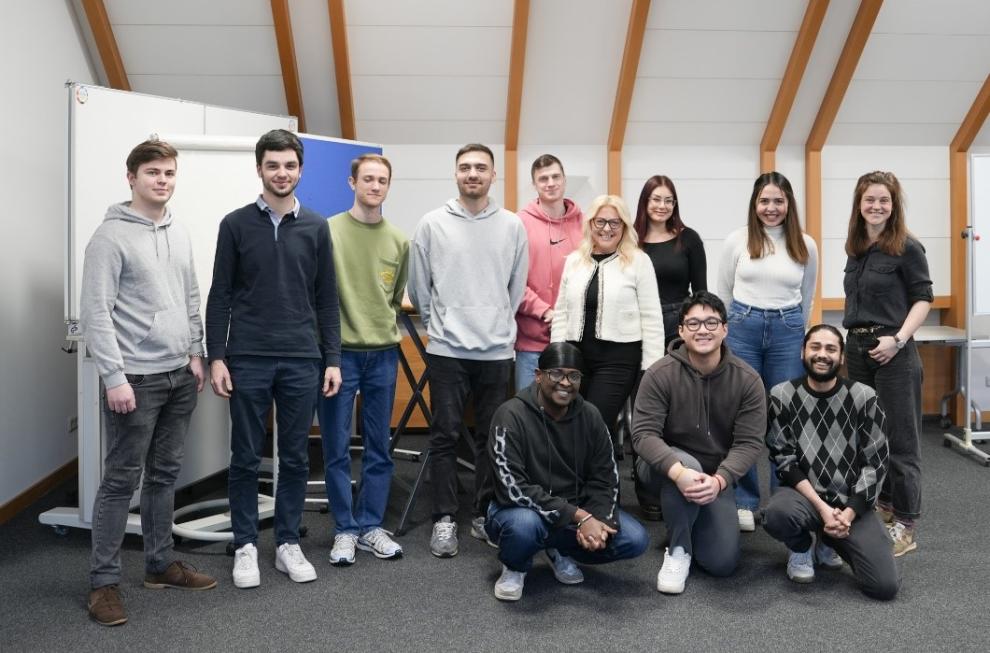Student research sheds light on the path to peat reduction in horticulture
In collaboration with the Agrobusiness Niederrhein association, eleven students from Rhine-Waal University of Applied Scienc-es provided exciting insights into the importance and potential of peat-free products in horticulture as part of the Trans-RegINT project.
Peat? At the beginning of last semester, this was a new topic for some of the international students on the marketing course led by Prof Dr Marina Gregoric, Professor of Business Administra-tion and Marketing at Rhine-Waal University of Applied Scienc-es. But after the first in-depth insights into the topic, the budding advertising experts' interest was quickly piqued.
Peat, a substrate that has been used for centuries in plant culti-vation, is increasingly being criticised for its negative impact on the climate and biodiversity. The extraction of peat leads to the destruction of valuable moors, which serve as CO2 reservoirs and are home to unique flora and fauna. Against this backdrop, the search for sustainable alternatives is becoming increasingly important.
In constant dialogue with Agrobusiness Niederrhein e.V. and after a visit to the plant producer and wholesaler Eurofleus El-bers in Kevelaer, the students learned about the background and developed questionnaires for their research focus. In their surveys, the students came to very similar conclusions: Around a third of those surveyed in DIY stores, garden centres and at the university were aware of the environmental consequences of peat extraction and its use in horticulture, while the topic was completely foreign to two thirds.
The results suggest that although there is currently limited will-ingness to pay higher prices for peat-free products, there is a clear opportunity to achieve an appreciation of the products. It is a challenge for customers to distinguish at a glance between plants in peat-based and peat-free substrates. According to the researchers, clear labelling and cooperation with nature conser-vation organisations could increase awareness and thus ac-ceptance. A combination of online marketing and in-store adver-tising is also recommended in order to reach people who rarely use social media.
It is important to tell people a story - and to evoke a feeling for the topic in order to then awaken motivation and hope with selected images and sounds. "In marketing, emotions are an important tool for raising awareness and changing purchasing decisions," says Yousif Bashir, who is enrolled on the Bachelor's degree programme International Business and Management.
The student research not only emphasises the importance of peat-free alternatives for the environment, but also demonstrates the high value of practice-oriented education. Luca Schröder, one of the students involved, commented on the experience: "It was refreshing to be able to combine the courses with practical challenges and create a link to current events." The students were not only able to apply their theoretical knowledge, but also make a contribution to an important social issue.
"I am delighted that such a diverse group of students were able to take an interest in this topic from the horticultural sector," says Regina Bach, a member of staff at Hochschule Rhein-Waal und Agrobusiness Niederrhein e.V. "We need interested and com-mitted young people here in the Lower Rhine region for this im-portant industry - and we can see that they are right here, on campus just around the corner."

